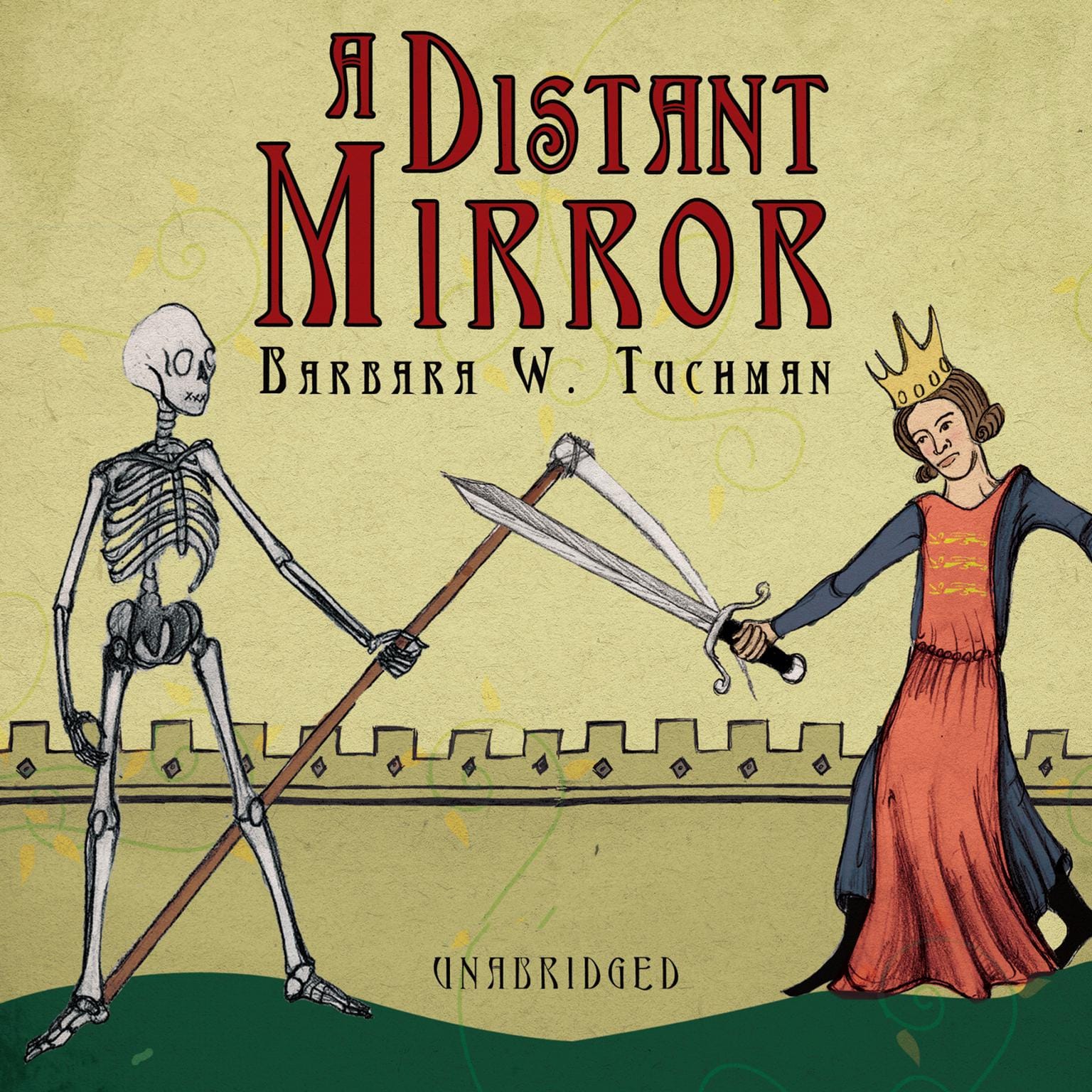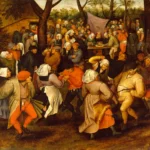Barbara Tuchman’s A Distant Mirror: The Calamitous 14th Century, winner of the 1980 U.S. National Book Award in History, isn’t just a history book; it’s a chilling reflection of a world consumed by crisis—a world that may feel eerily familiar. The 14th century, ravaged by plague, war, and societal collapse, stares back at us, holding up a mirror to our own anxieties and uncertainties. Join us as we journey into this turbulent era, exploring Tuchman’s powerful insights and examining the book’s enduring relevance in the 21st century. What can the calamities of the past teach us about the present, and perhaps, the future?
The 14th Century: A World in Crisis
Tuchman masterfully portrays a 14th-century Europe engulfed in a perfect storm of disasters. The Black Death, a plague of unimaginable scale, decimated populations and shattered social structures. Dead Wake The Last Crossing of the Lusitania offers another glimpse into the devastating impact of unexpected catastrophe, albeit in a different context. The Hundred Years’ War, a brutal and protracted conflict, further destabilized the continent, leaving enduring scars on the political landscape. Adding to the chaos, the Papal Schism, a crisis of faith within the Catholic Church, eroded religious authority and fueled social unrest. These interwoven calamities created a world teetering on the brink, a world grappling with profound change and uncertainty.
The Black Death: More Than Just a Plague
Tuchman delves into the insidious effects of the Black Death, going beyond mere statistics to reveal its devastating impact on society. Fear and paranoia became as rampant as the disease itself, driving communities apart and leading to widespread social breakdown. This pervasive dread likely resonates with modern readers who have experienced the anxieties of recent pandemics, reminding us of the fragility of human life and the psychological toll of widespread disease.
The Hundred Years’ War: Scars of Prolonged Conflict
The Hundred Years’ War, a complex web of political maneuvering and brutal battles, left an indelible mark on 14th-century Europe. Tuchman vividly depicts the rise of mercenary armies, the constant threat of violence, and the devastating consequences for civilians caught in the crossfire. The echoes of prolonged conflict and humanitarian crises in our modern world make this aspect of the book particularly relevant. We see potential parallels in the displacement of people, the destruction of infrastructure, and the enduring psychological scars of war.
The Papal Schism: A Crisis of Faith
Imagine a world with two Popes, each claiming legitimacy and vying for power. This was the reality of the Papal Schism, a crisis that shook the foundations of religious authority and further destabilized an already fractured society. Popular uprisings, fueled by desperation, inequality, and a longing for change, erupted across Europe. The crumbling of established authority, both religious and secular, likely contributed to this unrest, mirroring the challenges we face today when trust in institutions erodes.
Tuchman’s Narrative: A Distant Mirror for Modern Times
Tuchman’s narrative skillfully weaves together these historical threads, drawing heavily on Jean Froissart’s Chronicles, a firsthand account of 14th-century life. Through Froissart’s eyes, we glimpse the thoughts, feelings, and daily experiences of individuals navigating this tumultuous era. The life of Enguerrand VII de Coucy, a French nobleman, serves as a focal point, offering a personal lens through which to view the broader historical context. His journey through political intrigue, military campaigns, and personal struggles allows us to connect with the human dimension of history, making the distant past feel surprisingly relatable.
Tuchman’s central thesis, that the 14th century serves as a “distant mirror” reflecting the anxieties of the modern era, remains a subject of ongoing debate among historians. While the specific circumstances differ, the underlying themes of societal disruption, human resilience, and the search for meaning in the face of adversity resonate deeply. Tuchman doesn’t offer easy answers, but she encourages us to confront uncomfortable truths about human nature and the recurring patterns of history. The book prompts us to ask: just how distant is this mirror, really? Are we, in the 21st century, grappling with similar challenges related to societal breakdown, loss of faith in institutions, and the psychological impact of crisis?
A Legacy of Insight: A Distant Mirror Today
A Distant Mirror continues to captivate readers with its vivid prose, insightful analysis, and enduring relevance. It challenges us to consider the cyclical nature of history and to learn from the mistakes and triumphs of those who came before us. By exploring the calamities of the 14th century, Tuchman offers a powerful reminder of the fragility of human societies and the importance of understanding the past to navigate the complexities of the present. Delving into Charles Baudelaire L’Albatros and its symbolic representation of the artist’s struggle can further illuminate the themes of societal alienation and the search for meaning found in A Distant Mirror.
Perhaps the most enduring lesson of A Distant Mirror lies in its exploration of human resilience. Despite the overwhelming challenges they faced, the people of the 14th century persevered, adapted, and rebuilt. Their stories remind us of the enduring human capacity for hope and resilience, even in the darkest of times. This message of resilience may be particularly relevant in our own era, as we grapple with complex global challenges and navigate an uncertain future. While the specific challenges may differ, the fundamental human responses to crisis—fear, adaptation, innovation, and the enduring search for meaning—likely remain remarkably consistent across time. A Distant Mirror invites us to reflect on these enduring aspects of the human experience and to consider what they might reveal about our own capacity for resilience in the face of adversity.
- SYBAU See You Baby Meaning: Gen Z Slang Evolves - July 1, 2025
- Unlock Your Inner Youth: Lifestyle Secrets for a Vibrant Life - July 1, 2025
- Decode SYBAU Meaning: Gen Z Slang Explained - July 1, 2025






